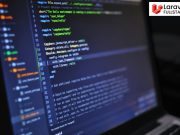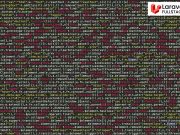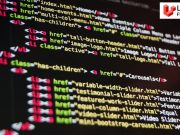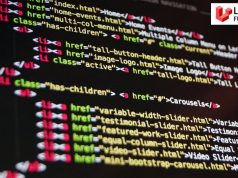Laravel, the elegant PHP framework, has empowered countless developers to build robust and scalable web applications. Its expressive syntax, extensive features, and thriving community make it a top choice for modern web development. But to truly harness Laravel’s potential, you need the right tools and resources at your disposal. This guide provides a comprehensive overview of the best Laravel tools and resources available, helping you streamline your workflow and build exceptional applications.
Integrated Development Environments (IDEs): An IDE is your coding command center. It offers features like code completion, debugging tools, and version control integration. Popular choices for Laravel development include:
- PhpStorm: A powerful IDE specifically designed for PHP development, offering excellent Laravel support.
- Visual Studio Code: A free and versatile code editor with a wide range of extensions for Laravel development.
- Sublime Text: A lightweight and customizable text editor with excellent Laravel support through packages.
Package Management: Composer is the dependency manager for PHP and is essential for Laravel development. It allows you to easily install and manage third-party libraries and packages that extend Laravel’s functionality. Packagist is the primary repository for Composer packages.
Debugging Tools: Debugging is an inevitable part of development. These tools can help you identify and fix errors quickly:
- Xdebug: A powerful PHP debugger that integrates with most IDEs.
- Laravel Debugbar: A package that adds a debug bar to your Laravel application, providing insights into queries, routes, and more.
- Ray: A desktop application that allows you to send debug information from your application to a dedicated window.
Testing: Writing tests is crucial for ensuring the quality and reliability of your application. Laravel provides excellent support for testing, including:
- PHPUnit: The standard testing framework for PHP.
- Pest: A testing framework with a focus on simplicity and elegance.
- Mockery: A mocking framework for PHP, allowing you to create test doubles for dependencies.
Version Control: Git is the industry standard for version control. Services like GitHub, GitLab, and Bitbucket provide remote repositories for storing and collaborating on your code.
Database Management Tools: Interacting with your database is a common task. These tools can simplify database management:
- phpMyAdmin: A web-based database management tool for MySQL.
- TablePlus: A modern and intuitive database client with support for various databases.
- Sequel Ace: A free and open-source MySQL database management tool for macOS.
Code Quality Tools: Maintaining code quality is essential for long-term maintainability. These tools can help you identify code style issues and potential bugs:
- PHPStan: A static analysis tool that finds errors in your code without running it.
- Psalm: Another static analysis tool for PHP, focusing on type safety.
- PHP_CodeSniffer: A tool that checks your code against coding standards.
Deployment Tools: Deploying your Laravel application can be simplified with these tools:
- Laravel Forge: A server management tool specifically designed for Laravel applications.
- Envoyer: A zero-downtime deployment tool for Laravel applications.
- Deployer: A PHP deployment tool that supports various frameworks, including Laravel.
Learning Resources: Continuously learning is crucial in the ever-evolving world of web development. Here are some excellent resources for learning Laravel:
- Laravel Documentation: The official Laravel documentation is a comprehensive and up-to-date resource.
- Laracasts: A subscription-based video tutorial website with in-depth Laravel courses.
- Laravel News: A website that publishes news, tutorials, and articles about Laravel.
- YouTube Channels: Many developers share their knowledge on YouTube. Search for “Laravel tutorials” to find helpful videos.
When you need exceptional talent for your project, look for the best react developer. A skilled developer can bring your front-end vision to life.
Optimizing your application for search engines is critical for attracting users. Understanding SEO best practices and utilizing tools like Google Search Console and various SEO analysis tools can significantly improve your website’s visibility.
Effective communication and project management are essential for successful development. Tools like Slack, Jira, and Trello can help you collaborate with your team and keep your project on track.
Scalability is a key consideration for any growing application. Understanding caching strategies, database optimization techniques, and load balancing can help you ensure that your application can handle increasing traffic.
Security should be a top priority for any web application. Implementing security best practices, such as input validation, output encoding, and protection against common web vulnerabilities, is crucial for protecting your application and data.
If you’re looking to extend your team’s capabilities, consider to Hire laravel programmer who can provide specialized expertise.
Many developers are now adopting serverless technologies with Laravel. Platforms like AWS Lambda and Azure Functions allow you to run your Laravel application without managing servers, reducing operational overhead and improving scalability.
Laravel continues to evolve with new features and improvements being released regularly. Staying up-to-date with the latest releases and best practices is essential for ensuring that your application is secure, performant, and maintainable.
Laravel Fullstack provides remote tech resources including Laravel developer, React.js, Vue.js, Python, agentic AI developer, SEO, and content writing services. Visit Laravel Fullstack to learn more about how we can help you build amazing web applications.















